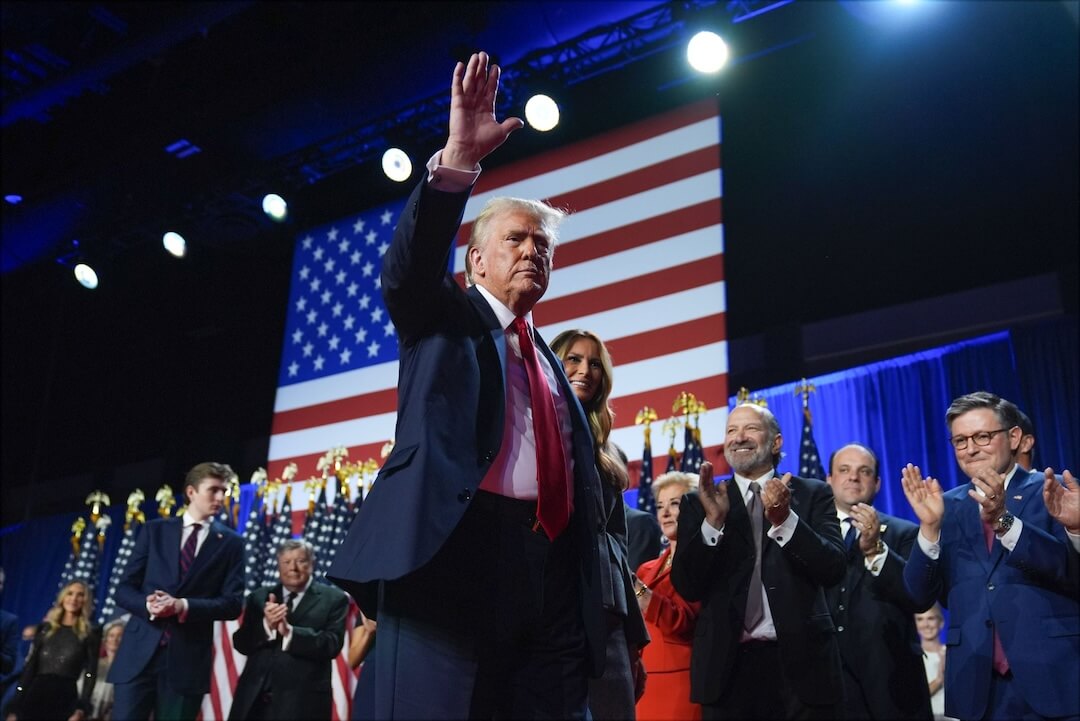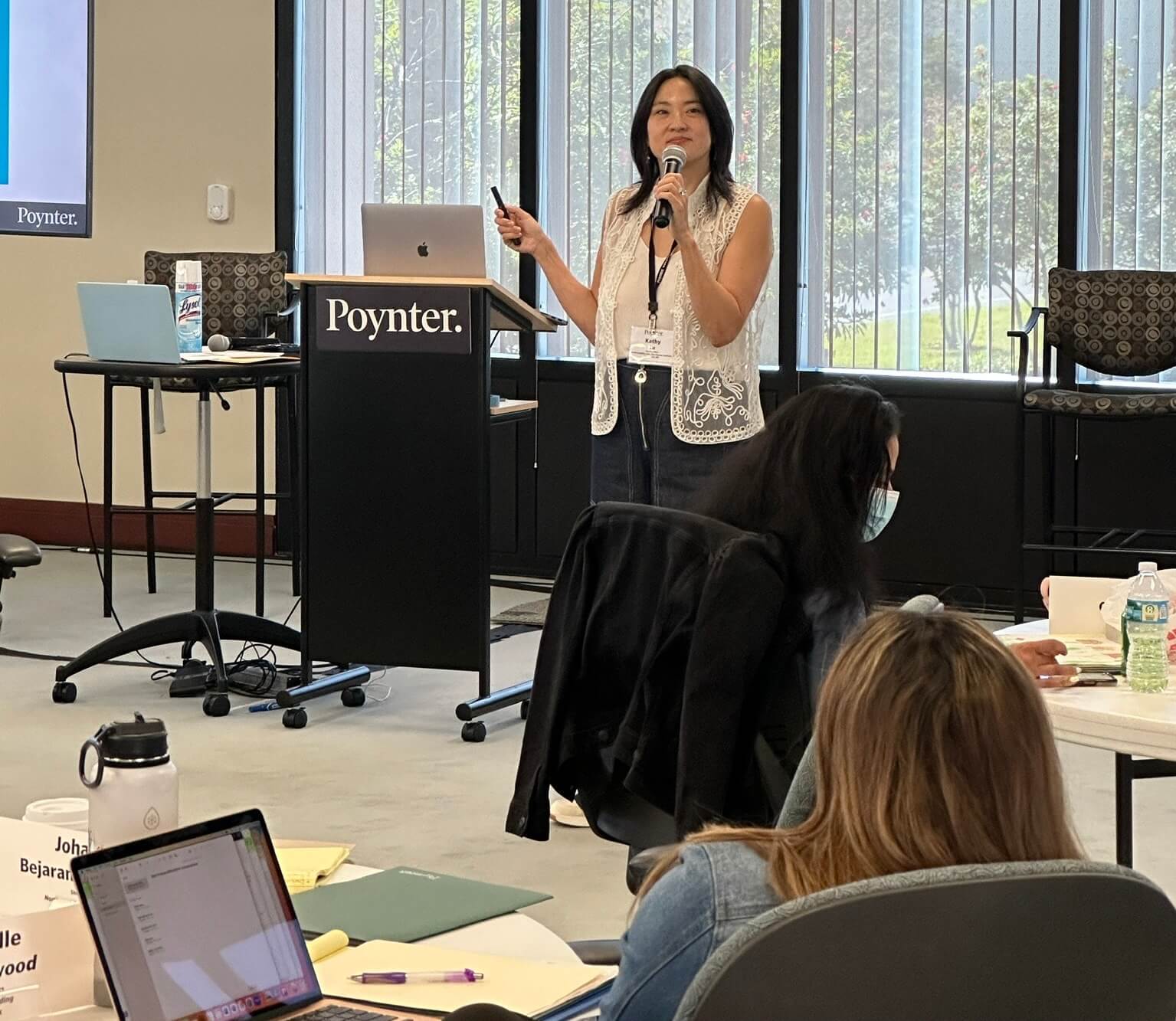After this election finally comes to an end, American journalists will be left to assess a chaotic race that has pushed at the conventions of campaign reporting.
Threats. Accusations of bias. Conspiracy theories. Journalists ran into a combination of falsehoods and media bashing that set 2016 apart from other U.S. presidential campaigns. So, how did the political press do? And what lessons from this election might be applied to future campaign coverage?
To find out, Poynter collected 20 responses from journalists and media observers who’ve paid close attention to coverage throughout this election cycle. The answers to our three questions come via email from journalists at NPR, The Washington Post, CNN, The Dallas Morning News and more. Those who responded live in New York, Florida, Arizona and California, to name a few. They cover beats including politics, race and the media.
You can find excerpts of their answers embedded in the story below. Their full, unedited responses are at the bottom.
1. What grade would you give journalists this year for covering the election and why?
Jeff Jarvis, director of the Tow-Knight Center for Entrepreneurial Journalism at CUNY’s Graduate School of Journalism, gave journalists a D.
“The job of journalism is to inform the public,” he wrote. “The candidacy of Donald Trump and the quality of political discourse is evidence of our failure. That should be no surprise given that we devote most (of our) journalistic resources to predicting races, not to informing voters.”
As did several of our respondents, Jarvis credited The Washington Post’s David Fahrenthold for pulling up the whole class.
Amy Hollyfield, deputy managing editor for politics at the Poynter-owned Tampa Bay Times, gave journalists a A “because some really terrific, lightning-speed work has been done on both campaigns, on voters, on the issues,” she said.
The challenges of this election, she said, are unlike any journalists have encountered before.
Phil Boas, editorial director at The Arizona Republic, handed out all the grades.
“The entire range,” he said. “We’ve seen great reporting. We’ve seen lousy reporting. Lots of As through Fs to hand out. But if I were to give an overall grade to news media, it would have to be an F. Not because the media made Trump, but because the media never saw him coming.”
2. What’s the biggest lesson for journalists from this election?
Several common lessons arose from the answers, including this one: The election showed that many journalists are disconnected from people across the country.
“It’s easy to sit in our ivory towers and make ‘educated’ guesses about who the frontrunners are,” said Emily Ramshaw, editor in chief of The Texas Tribune. “It’s another thing entirely to step out of D.C. and New York — to step off of the campaign buses and out of the debate halls — and absorb the frustration and resentment of the underprivileged, the uneducated, in the South, in the Rust Belt, in the American heartland.”
Another lesson: Journalists can’t ignore race, class or ethnicity. One of the media’s biggest mistakes is the reluctance to cover race as a factor in this election, said Tracie Powell, the founder of All Digitocracy.
“Journalists have failed us in providing the context of deep divisions that persist in this country, and the way they are being exploited and played out in this election,” she said. “Whether journalists are afraid to tackle such deeply-rooted conversations, or just ill-equipped, mainstream news media’s actions, or inaction, has been to our democracy’s detriment.”
Katherine Miller, political editor at BuzzFeed News, noted that lack of diversity in newsrooms has mattered in a year dominated by stories such as the Black Lives Matter movement, the rise of Latino voters and the blue-collar vote.
“Anyone can report on these things, obviously,” she said, “but having people familiar with these things on a deeper level adds so much to coverage, reaches big parts of the country and opens up new stories for everyone on a political staff.”
The power of innovative approaches to campaign coverage was also on display this year. Work from some journalists, including CBS News’ Sopan Deb and the Post’s Fahrenthold, were enhanced by non-traditional methods, said Politifact creator Bill Adair.
Another common lesson: Journalists have an obligation to call out blatant falsehoods.
“If we’re putting someone in a story who says something that is completely and objectively false, it is our job to point that out,” said Shereen Marisol Meraji, a reporter for NPR’s Code Switch. “It is our job to do more than state what each side says and call it a day.”
This isn’t a new lesson, said Brian Stelter, host of CNN’s “Reliable Sources.”
“But 2016 was a bright and shiny reminder and reconfirmation,” he said.
3. What, if anything, about this election will change the way future elections are covered?
Notions of fairness came up for a few respondents.
“Mainstream political journalists have always been reluctant to use words like ‘lie’ and ‘false,’ for example, and have sought to be restrained in their characterizations, preferring to simply line out the facts and let readers…conclude,” said William “Windy” March, a freelance political reporter based in Florida. “Politicians have learned to take advantage of that. I think this election will move journalists toward more conclusory, assertive characterizations and judgmental language.”
The changing media landscape will make more difficult for traditional news organizations to be heard through all the noise, said Eric Deggans, NPR’s TV critic.
Jose Antonio Vargas, the founder and editor of #EmergingUS, agreed. But he noted that engaged audiences will take their stories into their own hands.
“There is no more ‘master narrative’ in election coverage,” he said. “The people formerly known as the readers are as engaged as ever and they refused to be boxed in, particularly those who are deemed as ‘minorities’ and ‘marginalized.’ Anyone who has Twitter or Facebook or Snapchat can frame his/her own narrative and tell his/her own story — look at the genesis of #BlackLivesMatter.”
While they differed on many points, several journalists agreed that 2016 wrought huge changes in political journalism.
“I think we’ll go into the next presidential election knowing nothing is sacrosanct,” Boas said. “All the old conventions are dying. Only a decade ago, there was zero chance a silver-haired socialist would carry the flame for a young generation, or that a billionaire who grabs crotch would inspire senior citizens who fear national decline. The old paradigms have rotted. A new world is here. And by the looks of it, anything is possible.”
Read the unabridged answers below:






